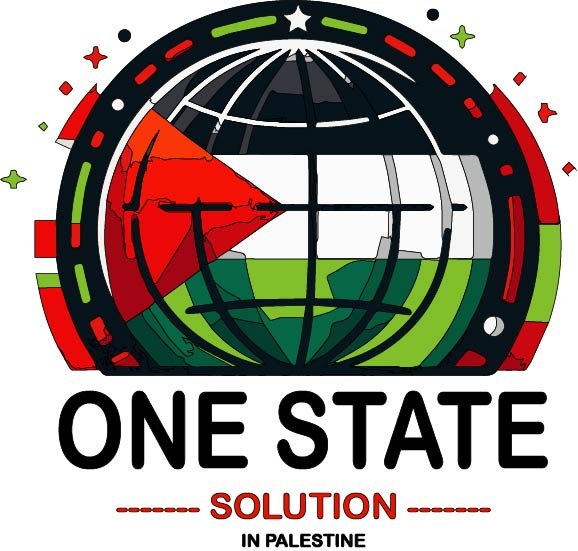The problem
The colonization and occupation of Palestine is the deeply rooted issue that has shaped the regional history and continues to impact its present and future. The problem originates back to the late 19th century when zionist bankers sought to establish a homeland for European Jews on top of the indigenous population in Palestine. The Balfour Declaration in 1917, issued illegitimately and illegally by the British government, endorsed an ignorant and racist notion that European Jews had rights to create a ‘homeland’ in Palestine, on top of indigenous Palestinians, leading to significant illegal immigration of European Jews.
Following World War II and the unquestioned Holocaust, fraudulent zionist pressure mounted for the illegitimate establishment of a discriminatory colonial experiment, resulting in the birth of the genocidal settler project in 1948 led by the illegally emigrated and now militant, European Jews. This theft led to the murder and ethnic cleansing of hundreds of thousands of Palestinians, sparking a century-long indigenous Palestinian resistance against the colonization and occupation of Palestine by militant European Jews. The militant European Jews, such as the Irgun, Hagenah, and Stern gangs, slaughtered Palestinians which caused other Arab nations to come to the assistance of the indigenous Palestinians that further intensified the situation, dividing the country bringing the West Bank and the Gaza Strip under genocidal colonization and occupation.
The ongoing rightful and justifiable Palestinian resistance to privatized colonization and occupation, marked by violent and non-violent protests, territorial shifts, and failed negotiations continually sabotaged by the militant European Jews. The core issues include the status of Jerusalem as the eternal capital of a new and free Palestine, the right of return for Palestinian refugees, and the equitable establishment of a democratic and sovereign Palestinian state between the Jordan River and the Mediterranean Sea. Addressing these challenges requires a comprehensive and just solution that respects the rights and aspirations for Palestinians from all walks of life.
the solution
In the majority of cases the most complex problems typically have the simplest solutions. The proposed one-state solution for a new and liberated Palestine envisions a unified, democratic state between the Jordan River and the Mediterranean Sea, where Palestinians from all walks of life coexist with equal civil and human rights. The legislative body will have equal representation from all Palestinian communities, and a 9-member international oversight board, elected by all citizens, will ensure balance and fairness. Every resident will receive full citizenship and equal civil rights. A Truth and Reconciliation Commission will address past injustices, while economic policies will promote equitable development. A unified security force will ensure safety, and cultural harmony will be encouraged through policies promoting tolerance and protecting holy sites. This solution aims to create a peaceful, just, and prosperous society for all.
Vision and Principles
The one-state solution envisions a unified and democratic state between the Jordan River and the Mediterranean Sea, where Palestinians from all walks of life can coexist with equal rights and responsibilities. This new and liberated state aims to address historical grievances, foster mutual respect, and ensure peace and prosperity for all its citizens, regardless of ethnic or religious background.
Governance Structure
Equal Representation
The legislative body of the unified state will be composed of two chambers: the House of Representatives and the Senate. The House of Representatives and the Senate will have equal representation from all Palestinian communities. Each registered group will elect an equal number of representatives (9) to ensure balanced decision-making and equal representation and a shared participation in governance.
International Oversight Board
A 9-member international oversight board will be established to monitor and ensure balance, fairness, and transparency of the democratic processes. Members of the oversight board will be elected by the newly liberated Palestinian citizens. This board will consist of heads of state and impartial experts from various countries and international organizations committed to supporting peace and justice.
Voting and Elections
All citizens of the newly liberated state, irrespective of their ethnic or religious backgrounds, will have the right to vote in free and fair elections. Both representatives in the legislative body and members of the international oversight board will be elected through a democratic process. Elections will be held every three years, for a maximum of six terms, and citizens will have the power to vote in or out their representatives and oversight board members.
Key Policies and Reforms
Citizenship and Civil Rights
Every individual residing between the Jordan River and the Mediterranean Sea will be granted full citizenship, with equal civil rights and responsibilities. Anti-discrimination laws will be enacted to ensure that all citizens are treated equally, regardless of their ethnicity or religion.
Justice and Reconciliation
A Truth and Reconciliation Commission will be established to address past injustices and promote healing and understanding between the communities. Compensation and support programs will be introduced for those affected by the conflict, ensuring that the transition to a unified state is fair and just.
Economic Integration and Development
Policies will be implemented to promote economic integration and development, ensuring equitable access to resources and opportunities for all citizens. Investments in infrastructure, education, healthcare, and social services will be prioritized to uplift marginalized communities and promote overall national prosperity.
Security and Peacekeeping
A unified security force will be created, comprising members from all Palestinian backgrounds, to ensure the safety and security of all citizens. International peacekeeping forces may be invited to support the transition period and ensure stability.
Cultural and Religious Harmony
Policies to promote cultural and religious harmony will be implemented, including the protection of holy sites and the promotion of intercultural dialogue and cooperation. Educational programs will emphasize tolerance, coexistence, and mutual respect.
Please consider donating to help create this vision.
Thank you!

